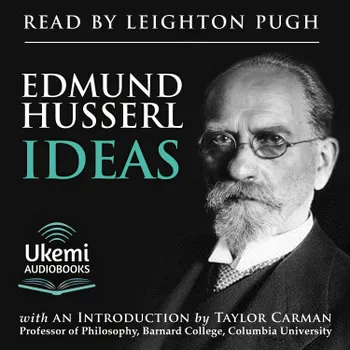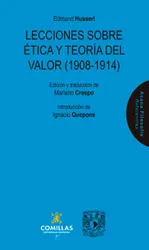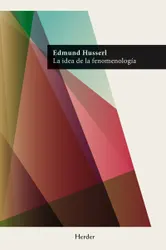As philosophy professor Taylor Carman explains in his helpful introduction, Edmund Husserl (1859-1938) was the founder of modern phenomenology, one of the most important and influential movements of the 20th century.
Ideas, published in 1913 – its full title is Ideas for a Pure Phenomenology and Phenomenological Philosophy – was the key work. It is arguably ‘the most fundamental and comprehensive statement of the fundamental principles of Husserl’s mature philosophy’. Carman continues, ‘What is phenomenology? It is, in short, an attempt to describe human experience as it is lived, prior to our reflecting on and theorizing about it, or indeed about the world that it reveals to us.’ Philosophy, Husserl proposed, had often become so immersed in the realm of abstraction and speculation that it had lost sight of fundamentals – in particular, a sense of reality, of man’s place in the world.
He called the concrete texture of lived experience ‘the phenomena’ and the purpose of Husserl’s phenomenology was to bring philosophical attention and enquiry back to the ordinary awareness of ourselves and the world. As Carman declares, the object of Husserl’s phenomenological investigation, is consciousness.
Ideas is divided into four parts: Part 1: Essence and Cognition of Essence; Part II: The Fundamental Phenomenological Outlook; Part III: Procedure of Pure Phenomenology in Respect of Methods and Problems; and Part IV: Reason and Reality (Wirklichkeit). This book and Husserl’s subsequent work had a strong influence on the existential movement of the 20th century, in particular the work of Martin Heidegger (1889-1976), Jean-Paul Sartre (1905-198) and Maurice Merleau-Ponty (1908-1961).
Phenomenology, Carman says unequivocally, became a 20th century movement which earned a permanent place in the history of philosophy and is indispensable for an adequate understanding of modern European thought. Husserl’s Ideas for a Pure Phenomenology and Phenomenological Philosophy is where it began. The text is presented in an exemplary clear reading by Leighton Pugh.






